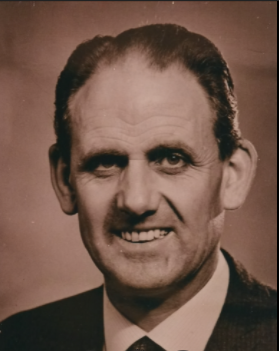Town Council celebrates International Women’s Day by telling the story of how a Deal man supported women with balls
Published: 25 February 2022
 This International Women’s Day, Deal Town Council is celebrating local man Arthur Hobbs, known as the ‘Founding Father of Women’s Football’. Pat Smith, local historian, has been researching Arthur’s passion for Women’s Football and tells his story here.
This International Women’s Day, Deal Town Council is celebrating local man Arthur Hobbs, known as the ‘Founding Father of Women’s Football’. Pat Smith, local historian, has been researching Arthur’s passion for Women’s Football and tells his story here.
Arthur’s story of how he became so instrumental in the resurgence of women’s football started the year before he was born. A 101 years ago, in 1921, the Football Association banned women’s football by prohibiting them from playing on and using football league pitches and facilities, pronouncing that “the council feel impelled to express their strong opinion that the game of football is quite unsuitable for females and ought not to be encouraged.”
With these words the FA strangled the women’s game and the ban remained in place for 50 years.
Women had been recorded playing football since the late 1700s. By World War 1, women working in factories were playing the game on their breaks. They formed teams, interest grew, and matches were arranged on town grounds. With the Men’s Football Association suspending the men’s leagues because so many players were at the Front, the national love of the beautiful game resulted in women’s football flourishing. The FA supported these games as fundraisers for the war effort drawing crowds of thousands to stadiums across the country.
When the war ended and men returned home, the women’s game retained its popularity with a gate of 53,000 spectators at Goodison park on Boxing Day 1920 to see the match between Dick Kerr Ladies and St Helen’s Ladies. Over 10,000 fans were turned away.
Reportedly by 1921 every major town in England had a women’s team, some with more than one but their success became a threat to the men’s game, especially as demand grew for professional status.
The FA ban was introduced in December 1921, because men of power believed the game was unsuitable for women. Registered referees were banned from officiating and access to facilities was refused. The women’s game became unsustainable. The rule remained in force until December 1969.
1966 is probably the most memorable date in English football, after the World Cup victory. It was also the incentive for the return of the women’s clubs.
This is where a man from Deal stepped in.
His name was Arthur Henry Hobbs. He was an amateur footballer and a carpenter for Deal Town Council. Arthur enthusiastically led a local women’s team and thought that a tournament would encourage women to join the game as he only knew of eight teams at the time, most of them in the north of England.
In the summer of 1967 Arthur organised a women’s football tournament, but there were problems. Although Deal Town FC were supportive, the FA blocked the use of the ground quoting the 1921 ban which was still in place. The chairman of Deal Town resigned in disgust and expressed his views in the East Kent Mercury.
Undeterred, Arthur approached David Ennals the local M.P., who backed him up to the hilt and Betteshanger Colliery provided the ground. The proceeds, which had been an issue in the 1921 ban, went to the British Empire Cancer Campaign, continuing the spirit of the first women’s games.
The first competition was between teams from local workplaces and youth groups. Held over a weekend in July, the matches were 15 minutes each way and played before decent crowds.
Interest grew and the second tournament in 1968, attracted better known teams including the Manchester Corinthians. By 1969 fifty-two teams took part. After its success Arthur Hobbs led the formation of the Ladies Football Association of Great Britain, the WFA with Arthur as its secretary.
The tournament continued until 1972, the year that the FA recognised the WFA by lifting its 1921 ban. The final match of the tournament was played on the Deal Town Charles Sports ground, which was affiliated to the Kent FA.
In 1993 the FA brought women’s football under its umbrella and support for the game continues to increase.
In July this year, Deal Town Football Club and Betteshanger Sports & Social Club, with the support of Deal Town Council, are planning to bring back Arthur’s tournament with Women’s teams playing for the Arthur Hobbs Cup.
Unfortunately, after the 1972 tournament Arthur’s health began to deteriorate, and the ‘Founding Father of Women’s Football’ died in 1975. He was just 52. He was a tenacious pioneer with a love of the ‘beautiful game’ who had no time for bigotry, making him a worthy ambassador for the theme of International Women’s Day 2022 - #BreakThe Bias.